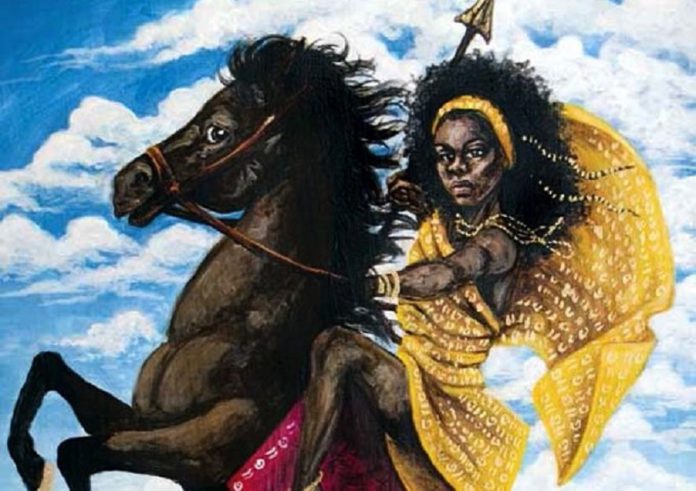Queen Akua, the Queen of Kingston in Jamaica or Cubah Cornwallis, as she is popularly known, is lost in history due to the improper documentation that makes it hard to follow or believe in her existence.
Queen Akua originates from the Ashanti Empire in Ghana which was then the Gold Coast. She was born around 1680/90. Exact date is unknown.
She was forcibly transported to the Island of Jamaica as a slave by the British. Her enduring legacy and fierce resistance to slavery and colonialism is a source of hope and a shining example to all people that are are oppressed and disenfranchised.
READ:
Why Davido skipped school for a whole year
Police officers enforcing lockdown to be served food
Queen Akua created her own militarized community called an Asafo, and referred to British settlers in Jamaica as “the maroons”.
Takyi also born into the Fante ethnic group (also part of the Akan) in the Gold Coast was a high-ranking chieftain, spoke fluent English, and admitted to selling enemies from other Akan states to be enslaved by the British. At some point, his people lost a war with another Akan state and he himself was sold into slavery under the British.
While he was enslaved in Jamaica, Takyi rose to the position of overseer on his plantation. It was from this position of relative autonomy that he planned his rebellion, with the aid of many other Akan rebels. Takyi was eventually killed and his head was brought to the British as evidence of his death. Takyi’s role was finished but several other bands of rebels renewed the effort in wake of Takyi’s death.
One was a warrior queen called Akua (the British called her Cubah). Queen Akua was another Ashanti queen who was elected by the enslaved population in Kingston to lead the subsequent rebellion.
ALSO:
Fetish priest arrested over lockdown extortion in Kumasi
Queen Akua was outfitted with all of the traditional markers of Akan Queenship. Before her campaign even began, they were discovered and she was deported for conspiracy. She foiled her own deportation by bribing the ship captain to transport her to the other side of the island where Takyi’s men were still fighting the British.
She fought alongside Takyi’s allies until she was captured and executed two months later.
Even though it is hard to give exact dates and years for specific events that took place in Queen Akua’s life, it is safe to say that she found herself in Jamaica in the 1750s and was crowned Queen of Kingston at around 1760 just before the Tacky wars.

